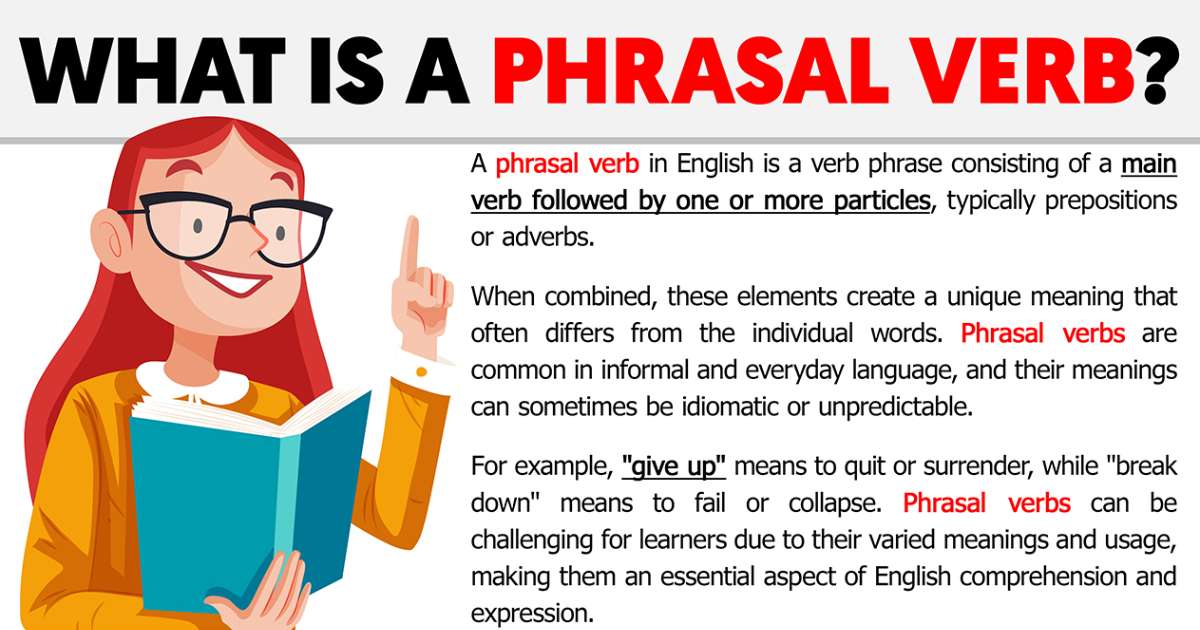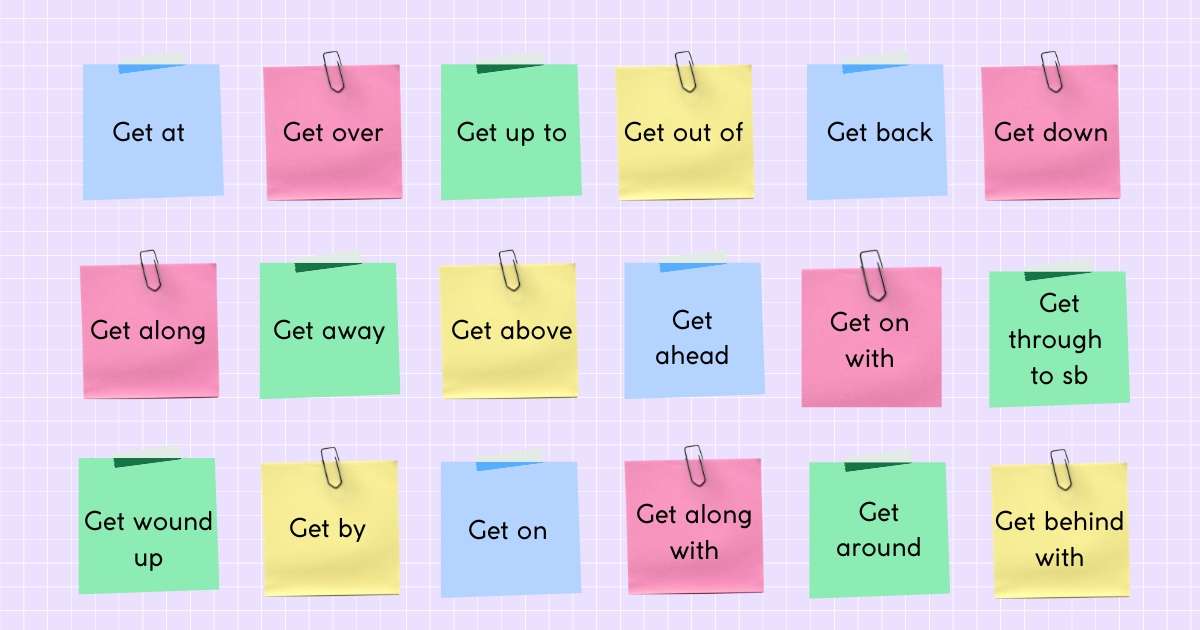I. What are phrasal verbs?
A phrasal verb is a combination of a main verb and one or more particles (prepositions or adverbs) that together create a new meaning, often different from the original verb.
Examples:
- Get up = to wake up (different from “get” = to receive).
- Look after = to take care of (different from “look” = to see).
So, learning common phrasal verb with get means mastering a completely new expression, not just the verb “get” itself.

II. 25+ Common phrasal verb with Get
How many phrasal verbs are there with “get”? There are dozens, but here we’ll focus on the 25+ most common ones with definitions and examples to learn English conversations naturally.
1. Get about
One of the common phrasal verb with Get is get about, which means to travel or move around. Example: She can’t get about easily after the accident.
2. Get above
Get above is used when someone thinks they are better than others. Example: Don’t get above yourself just because you got good grades.
3. Get across
Among the practical phrasal verb with Get, get across means to communicate an idea successfully. Example: The teacher managed to get the idea across to the students.
4. Get across to
A slightly different phrasal verb with Get is get across to, which means to make someone understand something clearly. Example: He tried to get his feelings across to her.
5. Get after
Get after is often used when you encourage or push someone to do something. Example: You should get after him to finish his homework.
6. Get ahead
Another frequent phrasal verb with Get is get ahead, which refers to making progress or succeeding in life or work. Example: She worked hard to get ahead in her career.
7. Get along
The phrasal verb with Get “get along” describes having a good relationship with someone. Example: They get along really well with their neighbors.
8. Get around
A versatile phrasal verb with Get is get around, which can mean moving from place to place or finding a way to avoid a problem. Example:
- He gets around by bike.
- We can get around the rule by applying early.
9. Get at
The phrasal verb with Get “get at” is used when someone implies or suggests something indirectly. Example: What are you getting at?
10. Get away
Get away means to escape or to go on a short trip. Example: The thief tried to get away but was caught.
11. Get back
Get back refers to returning to a place or regaining something. Example: I need to get back home before midnight.
12. Get behind
Another interesting phrasal verb with Get is get behind, which means either supporting someone or failing to keep up with tasks.
- The students got behind their teacher’s idea.
- I got behind on my rent this month.
13. Get by
The phrasal verb with Get “get by” describes managing to survive or cope with limited resources. Example: It’s hard to get by on such a small salary.
14. Get down
A common phrasal verb with Get is get down, meaning to depress someone or to begin working seriously. Example:
- The rainy weather really gets me down.
- Let’s get down to business.
15. Get in
The phrasal verb with Get “get in” means to arrive at a place or to enter. Example: What time did you get in last night?
16. Get into
Another phrasal verb with Get is get into, used when someone becomes involved or interested in something. Example: He got into trouble at school.
17. Get off
The phrasal verb with Get “get off” means leaving a bus, train, or plane, or avoiding punishment. Example:
- We need to get off at the next station.
- He got off with only a warning.
18. Get on
Among the useful phrasal verb with Get, get on refers to boarding transport or making progress in something. Example:
- She got on the bus quickly.
- How are you getting on with your studies?
19. Get out
Get out means to leave or escape from somewhere. Example: Get out of the car right now.
20. Get out of
Another common phrasal verb with Get is get out of, which means avoiding doing something. Example: He tried to get out of doing his chores.
21. Get over
Get over is used when recovering from illness, shock, or difficulty. Example: It took her months to get over the flu.
22. Get round
A persuasive phrasal verb with Get is get round, meaning to deal with a problem or persuade someone. Example: He got round his parents by promising to study hard.
23. Get through
The phrasal verb with Get “get through” is used when finishing something or managing to contact someone. Example:
- I finally got through the exam.
- I couldn’t get through to her on the phone.
24. Get to
Another emotional phrasal verb with Get is get to, which means reaching someone or affecting them emotionally. Example: That movie really got to me.
25. Get up
Finally, one of the most common phrasal verb with Get is get up, meaning to rise from bed or stand up. Example: I usually get up at 6 a.m.

Read more:
In this list, you’ve seen more than 25 common phrasal verbs with get, each with meanings and practical examples. Mastering them will help you sound more natural and fluent in English conversations.